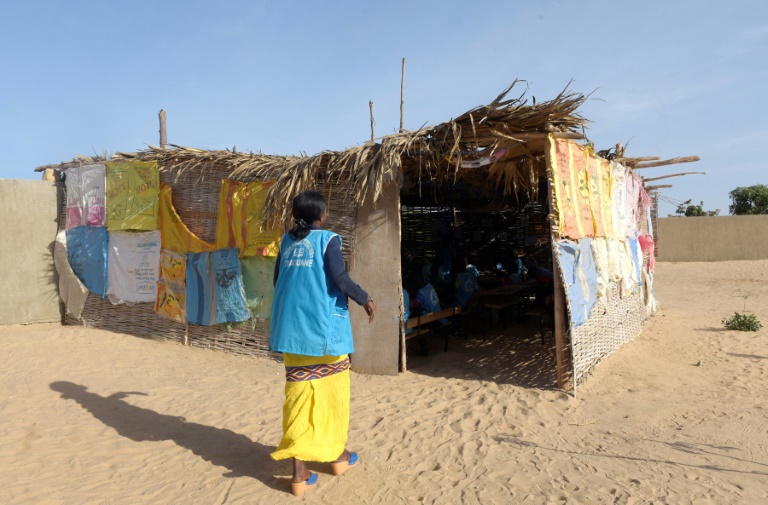Karezza is the slow food of sex
An international push to get a quarter of a billion children back to school got under way on Thursday at a conference aiming to fund education in defiance of poverty and unrest.
Around the world, 264 million children are not in school, a gap that will keep many of them poor for the rest of their lives, according to organisers of the Global Partnership for Education (GPE).
Co-hosts Senegalese President Macky Sall and French leader Emmanuel Macron are expected to be joined by the musician Rihanna in the Senegalese capital of Dakar on Friday.

A makeshift shelter in Tivaouane, near Dakar, is serving as a pilot primary school of the Global Partnership for Education
The two-day conference brings together donor governments and developing nations which have signed up for an exceptional partnership.
The organisers of the event are hoping to raise $3.1 billion (2.49 billion euros) over the next three years for programmes to support basic education in 65 developing countries.
But a big chunk of the onus under the scheme also lies with developing nations.
Partner countries in the scheme are required to earmark 20 percent of their national budgets to education — a goal that can be extremely tough for those battling jihadists or civil conflicts.
Literacy in sub-Saharan Africa hovers around 65 percent, according to UNESCO, the UN’s culture and education agency, and girls lose out disproportionately.
– Families carry burden –
Families carry a large burden of the costs, even in relatively wealthy countries such as Senegal, where around 24 percent of the budget goes toward education.
Human Rights Watch says public secondary schools in Senegal charge upwards of 50,000 CFA francs () per student, far too high for many families
Elin Martinez, children’s rights researcher at Human Rights Watch, said government secondary schools in Senegal charge fees and indirect costs each school year upwards of 50,000 CFA francs ($93) per student, a cost that is out of reach for many families.
“In my neighbourhood, a 16-year-old had to drop out. Her parents just said it was too expensive,” said at a pupil at Colobane Lansar B school in Pikine, a suburb of the Senegalese capital Dakar.
Mothers at the school have created a group which helps with cleaning, cooking and tutoring — areas that Senegalese school budgets cannot cover.
“Here in Senegal, if a child succeeds, it’s everyone’s child. But if he fails, we point the finger at the mother,” sighed the headteacher, Sokhna Astou Seck, noting the traditional pressure on women to shoulder the burden.
The poorer the country, often the larger the outlay by families.
In Guinea-Bissau, a tiny Portuguese-speaking state that borders Senegal, households contribute 63 percent of spending on education, according to UNESCO — more than six times that of a western European country.
“African governments and above all, households, do everything they can for education,” said Marie-Pierre Nicollet, director of the social and demographic transition department for France’s development agency.
– Challenge of conflict –
Ahead of the conference, Wadi Ben-Hirki, an activist with the ONE anti-poverty charity, paid a visit to Colobane Lansar B school in Dakar suburb Pikine.
Ben-Hirki urged the 10-year-olds in front of her to stay in school if they want to make it in life, noting that no one gets to be president if they drop out.
“Life doesn’t give you what you deserve, it gives you what you demand. So don’t just sit and wait,” she said.
Ben-Hirki hails from northeastern Nigeria, where the jihadist group Boko Haram is carrying out an insurgency that has included attacks on schools and the abduction of schoolgirls.
“The funds meant to be channelled toward education have been channelled towards peace, towards security and other things. So it has really affected education in my area and beyond,” she said.
Nearly a third of 15-24-year-olds living in countries affected by conflict or disaster are illiterate, Unicef says
Nearly a third of 15-24-year-olds living in countries affected by conflict or disaster are illiterate, Unicef says.
In Niger, a west African state also affected by the Boko Haram insurgency, that figure is more than three-quarters.
“An uneducated child who grows into an illiterate youth in a country ripped apart by conflict or destroyed by disasters may not have much of a chance,” said Unicef chief Henrietta Fore.
sst-burs/jom/ri-gd
Download our app